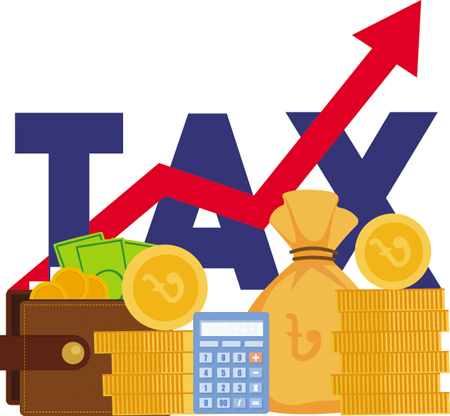

The government is under mounting pressure to boost revenue collection amid its persistent shortfall and the ballooning of public debt. There is also a pressing need to meet the International Monetary Fund (IMF) condition of raising the tax-GDP ratio as part of a $4.7 billion loan agreement. Given that Bangladesh's tax-GDP ratio is one of the lowest in the world, the objective of augmenting revenue collection is logical and pragmatic in favour of fulfilling the IMF condition and broader economic stability. But the question is, how to achieve the desirable revenue target? A timeless saying goes, "The art of taxation consists in so plucking the goose as to obtain the largest amount of feathers with the least possible amount of hissing." This metaphor vividly captures the essence of maximising taxation while simultaneously minimising public resistance and dissatisfaction. Ideally, this is the principle that should guide the government's tax policy.
Regrettably, the government has opted to increase the tax burden on existing tax-payers, instead of prioritising the much-needed broadening of the tax net. One such counterproductive measure is the quadrupling of the turnover tax for cottage, micro, small, and medium enterprises (CMSMEs), which jumps from 0.25 per cent to 1.0 per cent. Similarly, companies and firms with an annual turnover of Tk 50 lakh or more, as well as individuals with a turnover of Tk 40 million or more, will now face a minimum turnover tax of one per cent, up from the previous rate of 0.6 per cent. The very concept of slapping a turnover tax is flawed and goes against the inherent principle of taxation. Turnover tax is levied on gross revenue, not net income. This means that even if a business is operating at a loss, it is still compelled to pay tax based on its total sales; and this minimum tax is non-refundable. If a business generates no income, how can imposition of an income tax on it ever be justified?
The hike in turnover tax, when the policy itself is fundamentally flawed, is not only unjustified but also ill-timed and unsustainable. It comes at a time when businesses are already grappling with prolonged political uncertainty and a significant economic slowdown. This presents a double whammy for struggling enterprises, especially those of CMSMEs, which employ approximately 85 per cent of the industrial workforce and are called the backbone of the economy. This onerous burden will stifle the growth of many prospective businesses, and it is absurd to think that entrepreneurial growth must be sacrificed to meet fiscal needs. In a word, it is reminiscent of colonial-era policies. It will inevitably put a damper on domestic investment and send a discouraging signal to potential foreign investors, who seek predictable and fair tax regimes.
Faced with a lofty revenue collection target, the National Board of Revenue (NBR) seems to have opted for the easy route of a wholesale turnover tax hike instead of focusing on increasing its efficiency to go after tax dodgers and curb tax evasion. This approach, once again, vividly exemplifies why tax policy-making must be separated from tax collection. When these two distinct tasks are entrusted with the same authority, there is a risk that it will set policies in a manner that primarily suits its convenience, disregarding the issues of fairness or the adverse impact on the broader economy. The government, therefore, must not budge in the face of protest from a section of NBR officials against the crucial reform of bifurcation. So, the hike in turnover tax must be reconsidered. A fair, predictable, and efficient tax environment is necessary for a sustainable economic and revenue growth.


 For all latest news, follow The Financial Express Google News channel.
For all latest news, follow The Financial Express Google News channel.